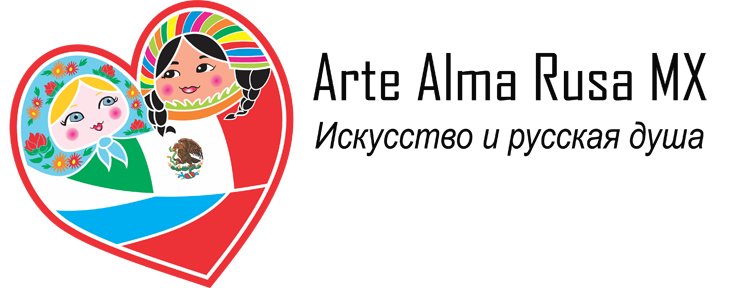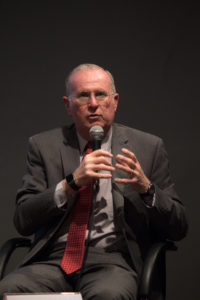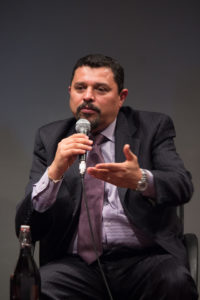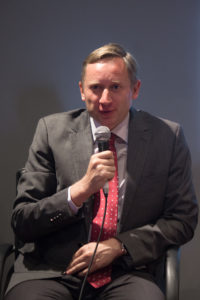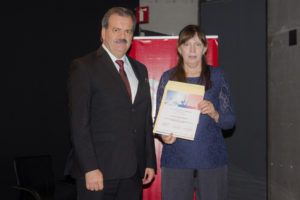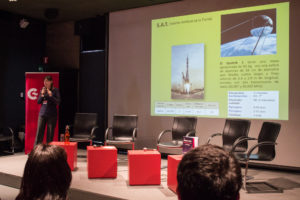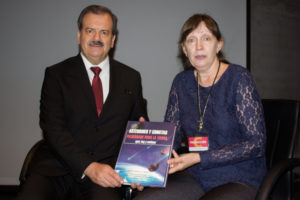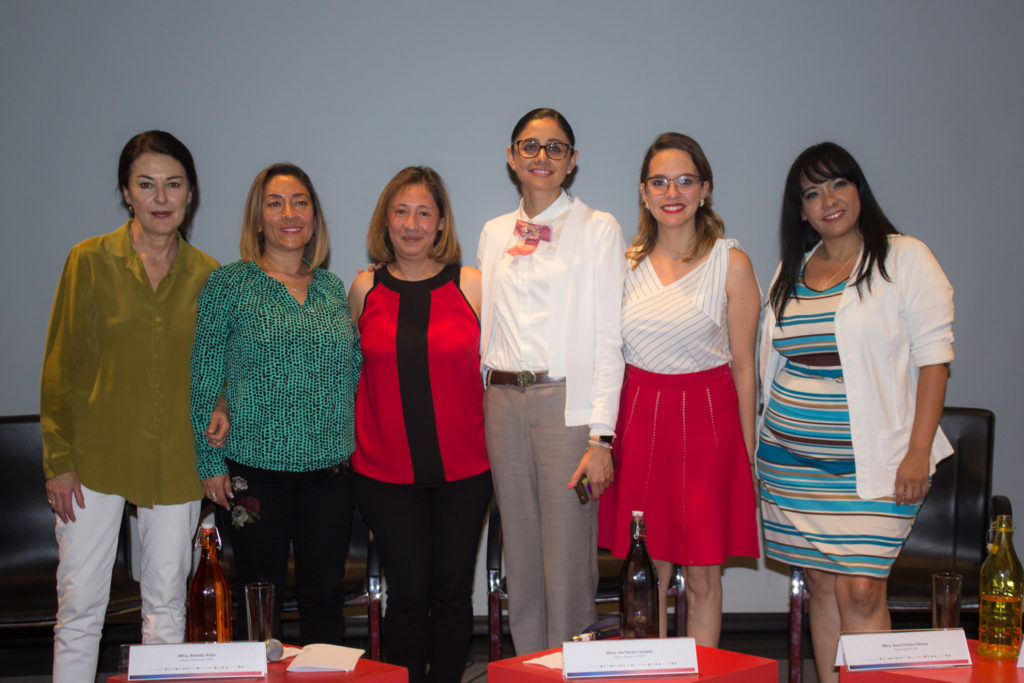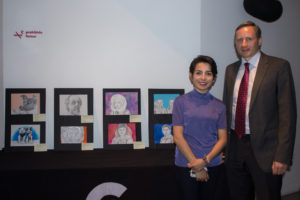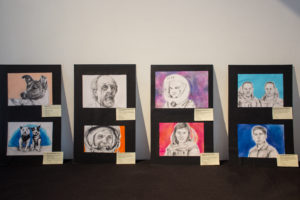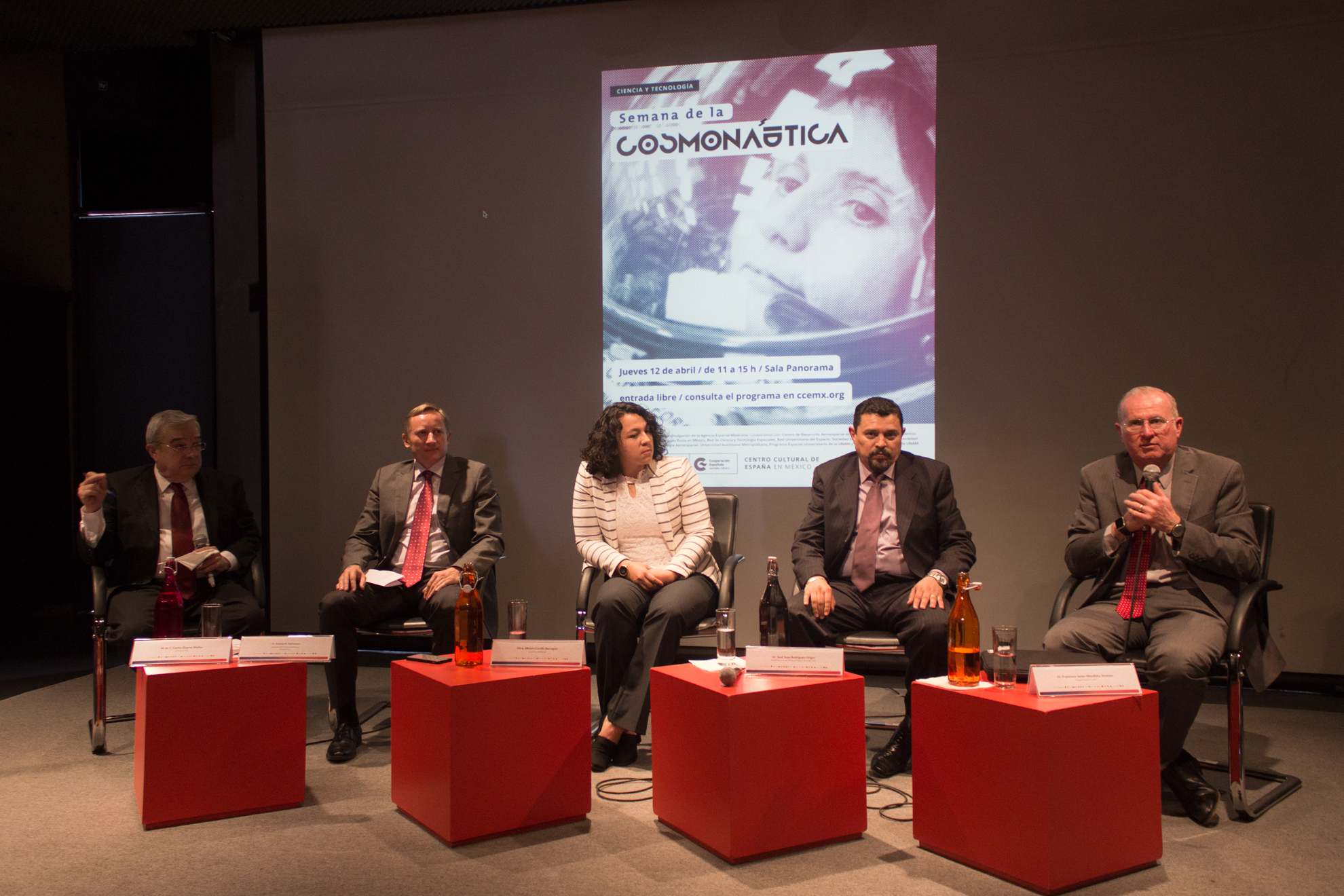
Science and art in the Cosmonautics Day in Mexico
“You are looking at Earth from afar you realize that it is very small for conflict and only big enough for cooperation”.
-Yuri Gagarin- Soviet cosmonaut and the first human to travel into space.
It is 12 April commemorated the 57 anniversary of the first manned trip by cosmonaut Yuri Gagarin Soviet. Thus, the Mexican Space Agency organized a week of activities around science and space from different approaches.
“Space is the future of humanity, it was said before. But today it is accurate to say that space is present”, He said Dr. Javier Mendieta Jiménez, general manager Mexican Space Agency, in opening the panel Disclosure space in Mexico.
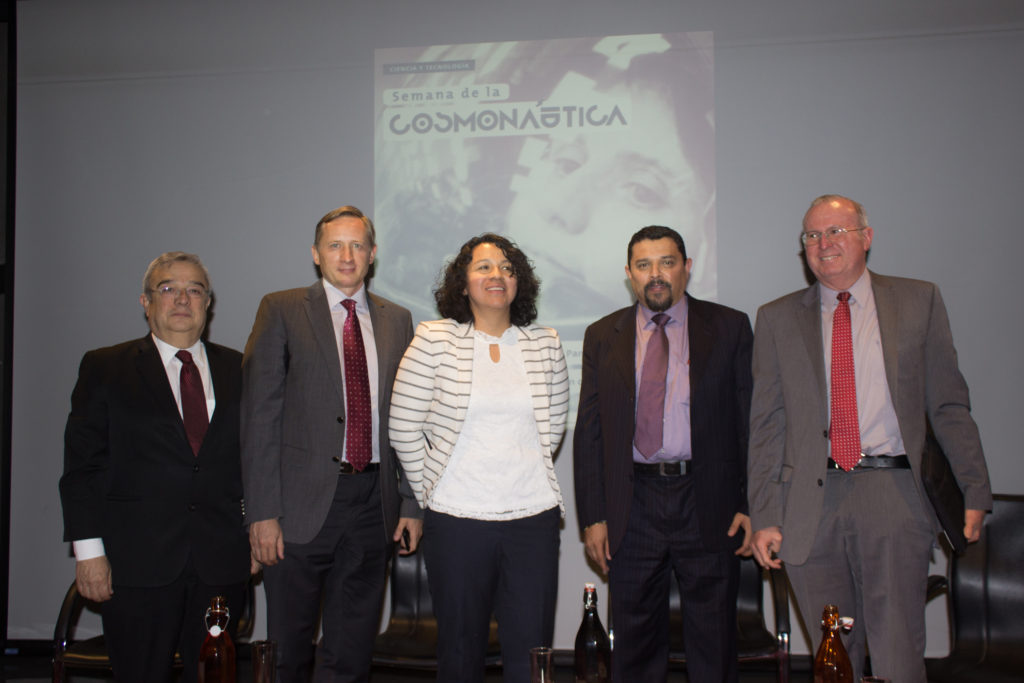
“Our present life depends on space, satellites that connect us and monitor our activity”, He mentioned Dr.. Mendieta, while it is doing a recount of the progressive advances in space exploration, since the mission of Sputnik in 1957, Manned flights to muti, coupling and Apollo milestone in the history of Cosmonautics.
Likewise, He stressed the principle of the three G governed by the International Astronautical Federation, of which Mexico is part: Gender, regarding inclusion of men and women; Geography, about the possibility of all countries in the activities of this branch, and Generation, that includes you, youth”.
Finally, The doctor. Mendieta referred to the large investment made by the private sector in the field of Cosmonautics profitable due to the resulting: “investments amount to 330 billion, The idea is that a human being reaches Mars 2030 and have at least one colony of several hundred humans in 2050. With Mexico has established alliances through the AEM, and space companies have been established in our country, we will have the opportunity to be part and contribute to achieving those objectives”.
Then, the Mtra. Miriam Carrillo Barragán, educational curator of the Universe Room at the Universum Science Museum, He recognized the importance of organizing events that generate exchange of ideas on science and technology. “Space technology is for everyone, and it is present in our daily lives; perhaps we do not realize that everyday objects as comfortable soles, football helmets, sunglasses, and even the first artificial heart, were possible thanks to technological development encouraged by the aeronautical”.
At the same time, He stressed the importance of professionalism in popularizing science, and beyond to make it taste and its particularities, He recalled that his primary mission is to cultivate and awaken the passion of people for specific topics, generate more educated citizens and arouse scientific vocation.
The Dr. José Juan Rodríguez Origel, Director, Center for Dissemination of Science and Technology of IPN, He stressed that the work of the Institute is to bring knowledge to society. “A country that has no knowledge development and research is a country that is stalled. The important thing is to have a taste for knowledge, and the impulse to investigate the origin of the things we use in everyday life”. He also took the opportunity to invite those present to Luis Enrique Erro Planetarium, one of the most innovative national and international level, with constant development since 5 decades.
During his speech, on behalf of the Embassy of the Russian Federation in Mexico, the Sr. andrey Pakhomov He recalled that Yuri Gagarin had just 27 years when, thanks to his courage and work of scientists and engineers of the USSR, carried out the flight marked the beginning of the space age. “I appreciate the support for, at the National Museum of Natural History in Chapultepec, It was unveiled the bust of Yuri Gagarin. This Week Cosmonautics aims to popularize the aerospace theme among young Mexicans, and strengthen ties between teachers and academics. From the Embassy we provide support in these scientific and cultural activities, as well as the signing of agreements between universities in our country and state grants, which works very effectively”.
To conclude, He announced that the Russian Federation granted 10 times more scholarships for Mexicans from this year, and he reiterated his desire to cooperate with new projects beneficial to both countries.

The Drag. Tatiana Kokina He gave the keynote “Problems space near Earth”, with issues such as development of satellites, monitoring space junk technology and the complications it would mean for future space travel. He also shared some of his work at the Autonomous University of Sinaloa and Science Center, Besides his academic publications and science fiction.
The Panel also took place: Women in Space Communication, where Ana Cristina Olvera (Earth space), Deyanira Salazar Tapia (Semar), iris Flowers (CONACYT Press), Estrella Burgos (As you see?), and Rocio Ledesma Saucedo (Editora converts), They talked about his experience as a professional communication and dissemination of science, besides the path that led to that source, and information processing to facilitate society and seek public appropriation of science.
On the other hand, the Panel: What dream Astronauts?, Mario Arreola (AEM), Raúl Alva, UAM Biofisicoquímico, Aleida Rueda (Institute of Physics), Alejandro Farah (Institute of Astronomy at UNAM), and Rodolfo de la Rosa, Cooperation Coordinator, Disclosure regulation and Aerospace Development Center IPN; They talked about the challenges facing every young man who dreams of being able to travel into space, and the trajectory and involves preparation. Of course, It was mentioned the case of Mexican astronaut Jose Hernandez, who worked hard to gain entry to NASA.

Visual artist Daniela Oliveros Miranda He presented a series of portraits of travelers into space titled "The Russian Cosmos and imaginary", as a proposal for synergy between art and science as a means of disclosure.
Week of Cosmonautics in Mexico was made possible by the Mexican Space Agency, in collaboration with the Center for Aerospace Development IPN, Dissemination Center for Science and Technology of IPN, Russian Embassy in Mexico, Network Space Science and Technology, University Network Space, Mexican Society of Astrobiology, Mexican Society of Aerospace Science and Technology, Autonomous Metropolitan University, University Space Program UNAM and Faculty of Engineering of the UNAM.
